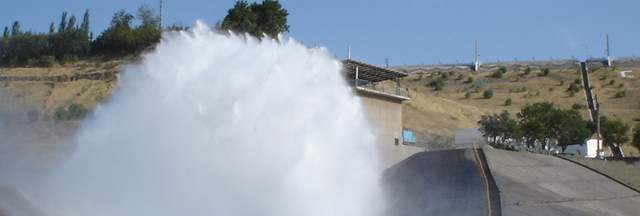Description
Available freshwater resources in Uzbekistan are limited resources. Although only 10% of the arable land is irrigated, the irrigation efficiency is low. The water demand amounts to 80% of overall annual water consumption in Uzbekistan. With demand for water growing in all sectors, it will be impossible to meet the combined needs in the medium term.
Action taken
Governmental initiatives regarding IWRM exist but they often fail to reach the end water users. Thus, GWP Uzbekistan held round tables aiming to improve public awareness on the issue.
The work of the GWP Uzbekistan is focusing on sustainable water development based on IWRM, as well as improvement of water facilities. It also conducted trainings and workshops on the dissemination of IWRM in Uzbekistan together with the "Rural Enterprise Support Project - Phase II. Irrigation And Drainage Component ” (of World Bank and the Swiss Agency for Cooperation).
The critical role of GWP Uzbekistan in this initiative was to integrate different water management and land reclamation organizations aiming for greater autonomy and self-regulation among IWRM organizations. It also supported the transition from a rigid administrative system of water management to a decentralized with massive public participation in water management.
Based on the analysis of existing irrigation scheme, GWP Uzbekistan supported establishment of Water Users Associations based on hydrographic principle. The Initiative group to implement this has been already created and promoted ideas among farmers during small scale meetings.
GWP Uzbekistan recognized a need to see practical actions and thus supported technical improvements of water supply systems (e.g applying of PVC reusable tubes instead of the traditional plastic film) and worked with water saving technologies introduction in agriculture irrigation.
Lessons learned
- IWRM is a complex approach that requires work to be done at different levels and sectors (e.g technical improvements, public involvement, and institutional rearrangements).
- Increased public awareness and involvement can be achieved through number of round tables, seminar and workshops involving water suppliers and water users. However it is important to focus on practical improvements at the same time.
- Rigid administrative system of water management can be improved by institutional changes that allow decentralized approaches with massive public participation in water management, such as establishment of Water Users Associations based on hydrographic principle.
- Technical improvement should be also considered part of the IWRM implementation.

